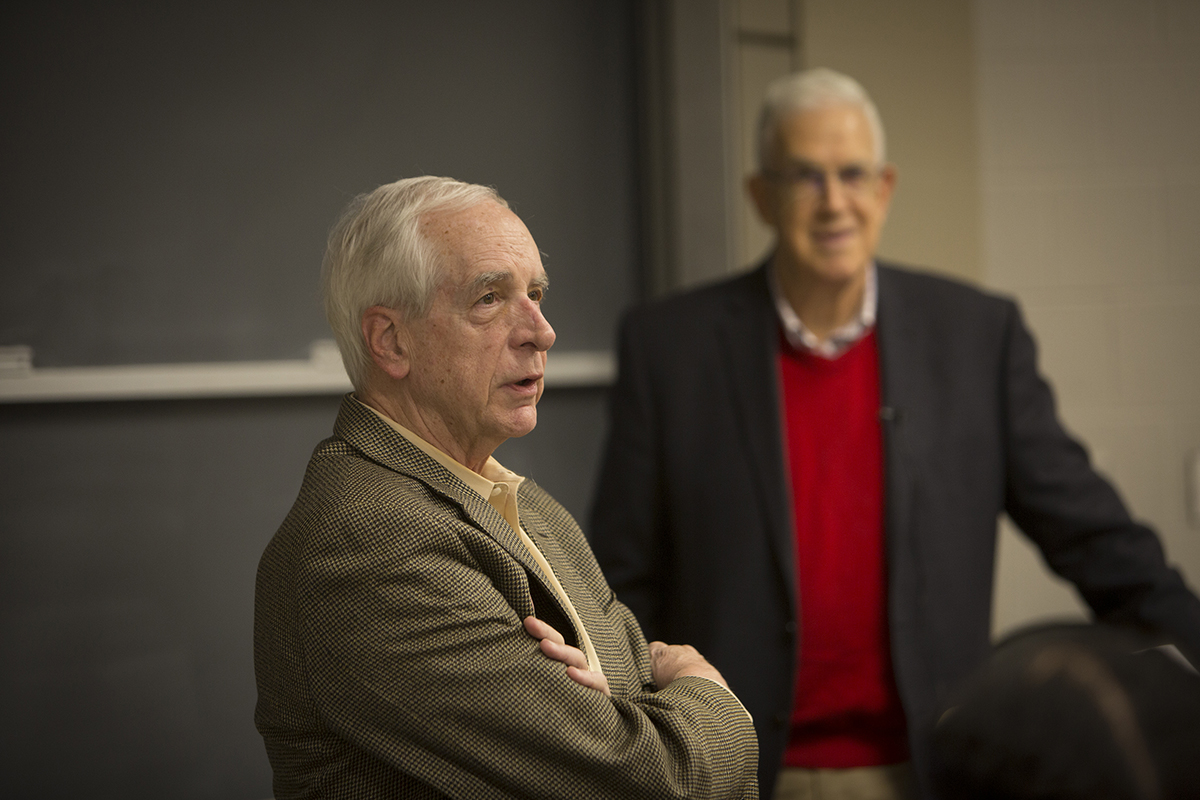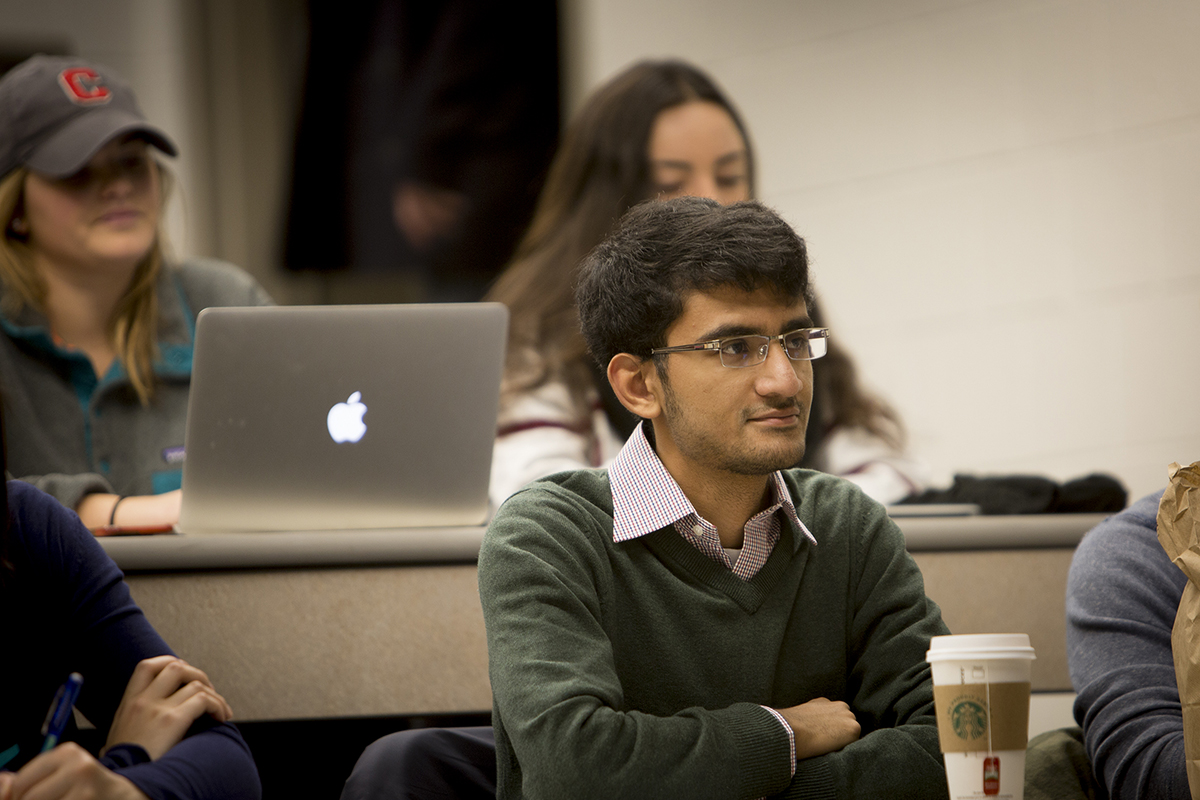Rawlings offers lessons in leadership to economics class
By Susan Kelley

Hunter Rawlings sees his role as interim president as offering stability during a period of transition. But as president, controversy comes with the job, he told a class of undergraduate students.
“Consult and consult and consult with the right constituencies but then make the decision … . And when you do, know that some people are not going to be happy with it. I don’t avoid issues,” he said.
Rawlings offered lessons in leadership as he addressed 65 students Nov. 21 in the class Economic Analysis of the University, taught by Ronald Ehrenberg, the Irving M. Ives Professor of Industrial and Labor Relations and Economics.
One controversial issue dominated his first year as president at the University of Iowa, he said. A gambling scandal involving a football player prompted him to suggest student-athletes shouldn’t play their freshman year, to give them time to concentrate on academics.
That statement made Rawlings one of the most reviled people in the state, he said. A rock was thrown through the window of his house. The governor called him. Rawlings’ teenage son, who shares his name, was ostracized at school. And a stranger with whom he shared an elevator ride told him he had “ruined her whole year.”
“That’s when I learned if you open your mouth, you’d better be ready to back it up,” Rawlings said.
But there were accomplishments, too. At Iowa, Rawlings raised significant private funds and helped to build the faculty, particularly in the sciences and at the medical school, resulting in an increase in research grants and endowed professorships. But after seven years of unending budget problems and a politicized, problematic board of regents, the presidency at Cornell was an appealing next step.
He took over from Frank H.T. Rhodes, who had been president for 18 years, twice as long as most presidents. “This is important for you to keep in mind in your own careers: Even when someone has served at a place in a position for a long time and built a great record, the place needs new leadership, just to get a different perspective,” he said.
At Cornell, he found a “self-segregated” campus, with many white freshmen preferring to live on West Campus, many underrepresented minority freshmen on North Campus, and freshmen who wanted “freedom now” living in Collegetown. Meanwhile, 20 committees had repeatedly called for a housing solution. Rawlings took the issue on – even though the dean of the faculty refused to participate, saying the problem was too volatile to address.

To mix the freshmen populations, Rawlings declared no freshmen would live in program houses – resulting in vociferous student protests, one involving the Rev. Al Sharpton. After more study, Rawlings said all freshmen would live on North Campus, where more residence halls were soon built. During his tenure the university also established Weill Cornell Medicine-Qatar, and dedicated significant resources to the material sciences, life sciences and information sciences.
During the lecture Rawlings also offered the students life lessons – including encouragement to “major in what you love.” “The major you choose isn’t as important as parents think,” he said.
Rawlings is the fourth Cornell administrator to lecture in the class, which seeks to illustrate the complexity of decision-making in a nonprofit organization and to show how microeconomic analysis in general and labor market analysis in particular can be usefully applied to analyze resource allocation decisions in universities.
Other guest lecturers this semester have included Provost Michael Kotlikoff, Vice President for Student and Campus Life Ryan Lombardi, and Kevin Hallock, the Kenneth F. Kahn ’69 Dean of the ILR School.
The speakers allow the students to test whether the class content, which focuses on how decisions are made and how economic principles do or don’t enter into the decisions, jibes with the administrators’ perspectives, Ehrenberg said.
None of the administrators have contradicted what the others have said, Ehrenberg said. “You get a sense that the university is very stably run,” said Ehrenberg, who was vice president for academic programs, planning and budgeting at Cornell 1995-98, during Rawlings’ presidency.
The class was especially relevant for Emad Masroor ’17, an engineering major who wants to start a university and reform the educational system in his native Pakistan after he gets his doctorate. “Cornell has a lot to teach higher education. … Getting to know it up close, talk to administrators, I think this class is an integral part of my education,” he said.
Gabe Kaufman ’18, an industrial and labor relations major who chairs the University Assembly, appreciated getting a few pointers from Rawlings. “He holds a really unique perspective, so you take what he says with a certain gravity.”
Media Contact
Get Cornell news delivered right to your inbox.
Subscribe